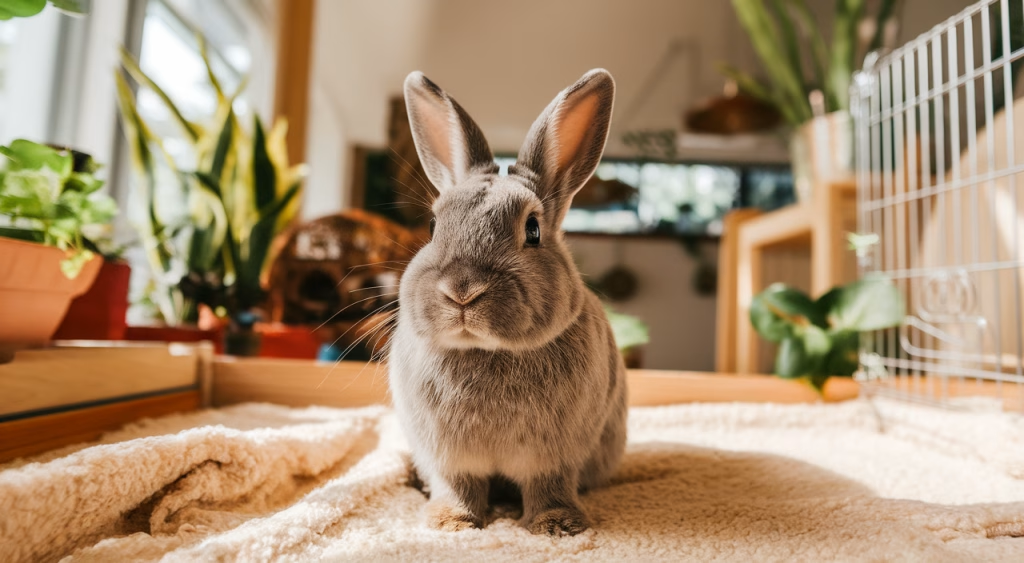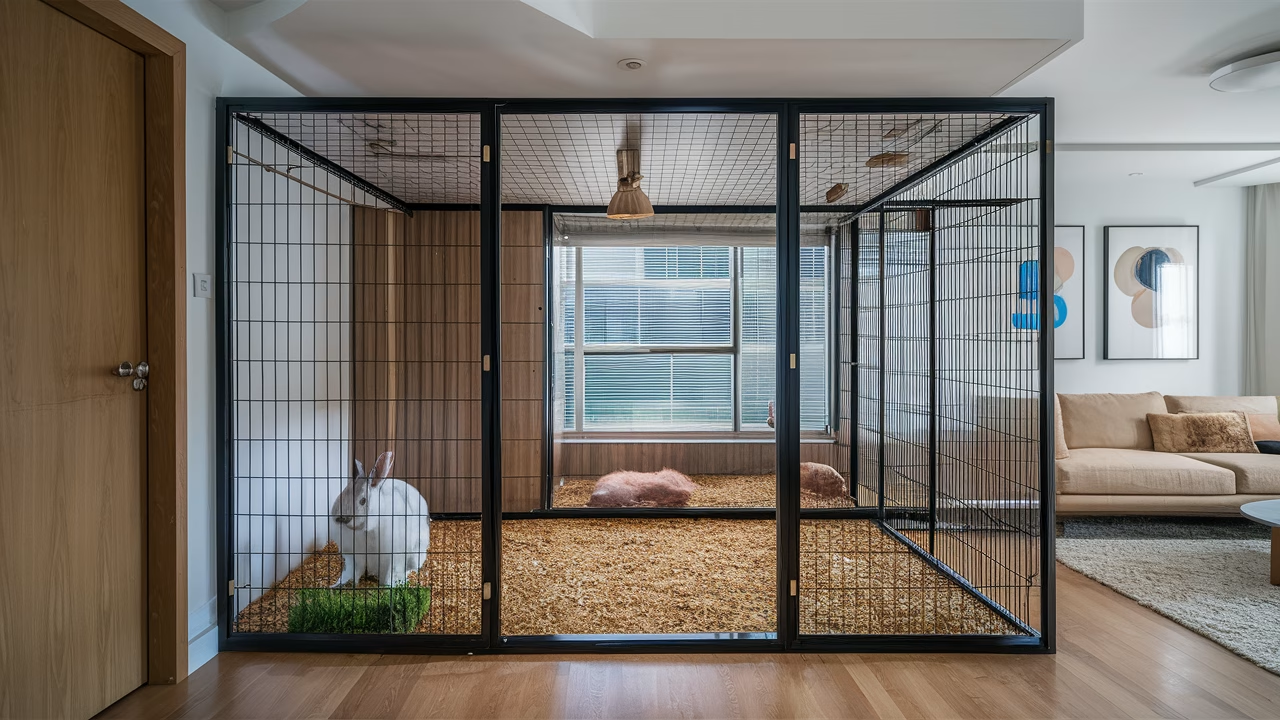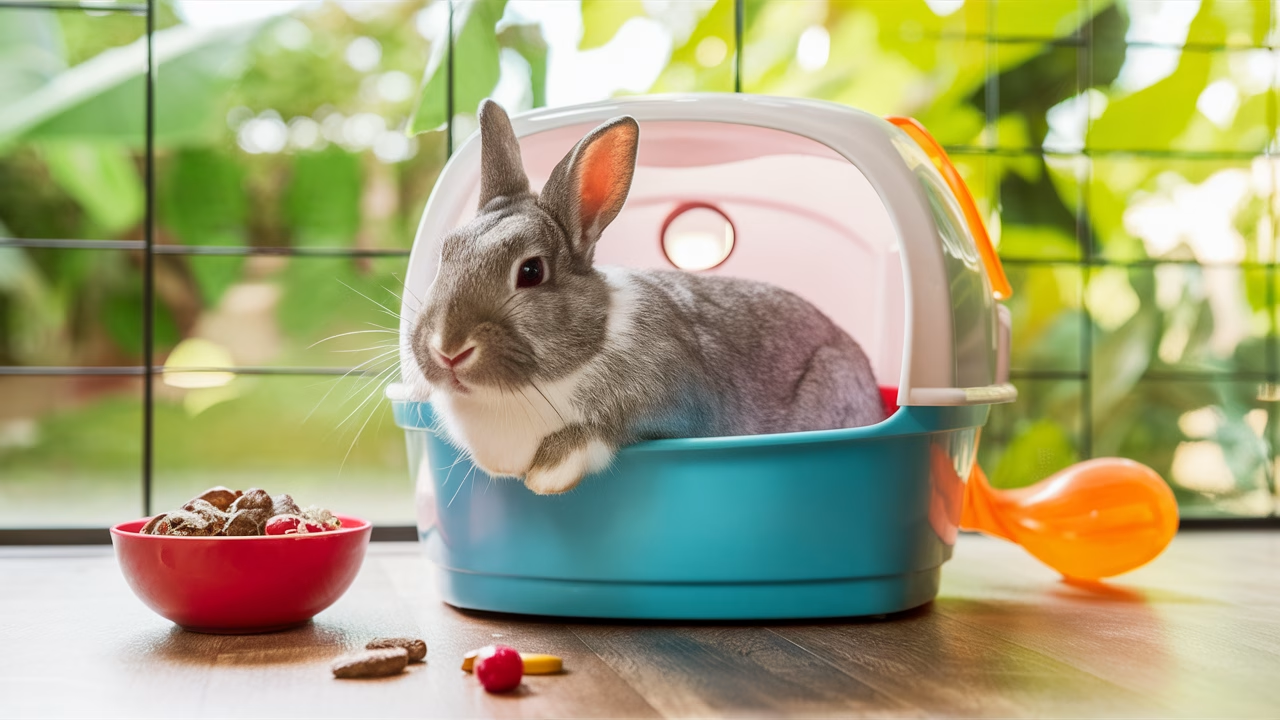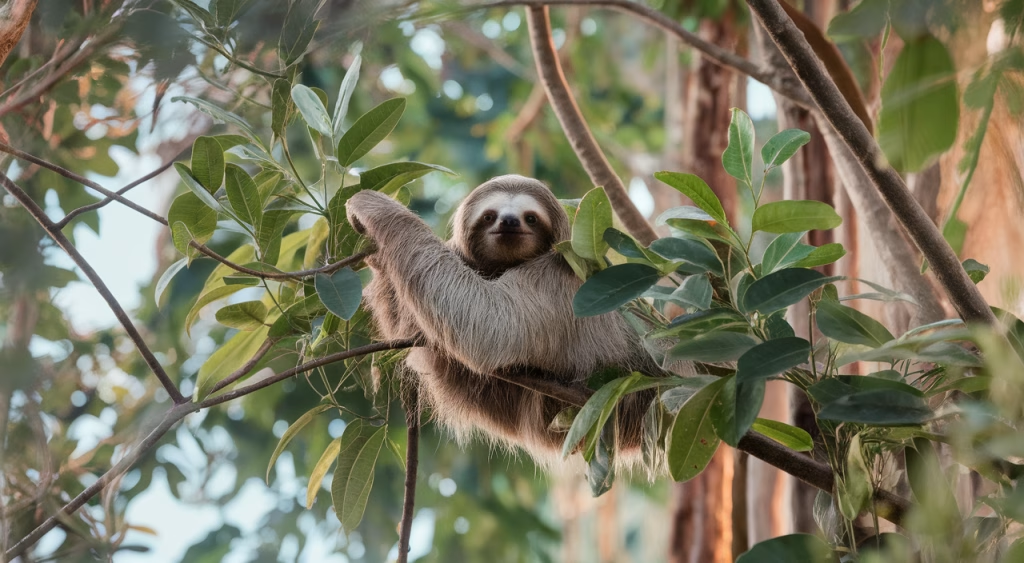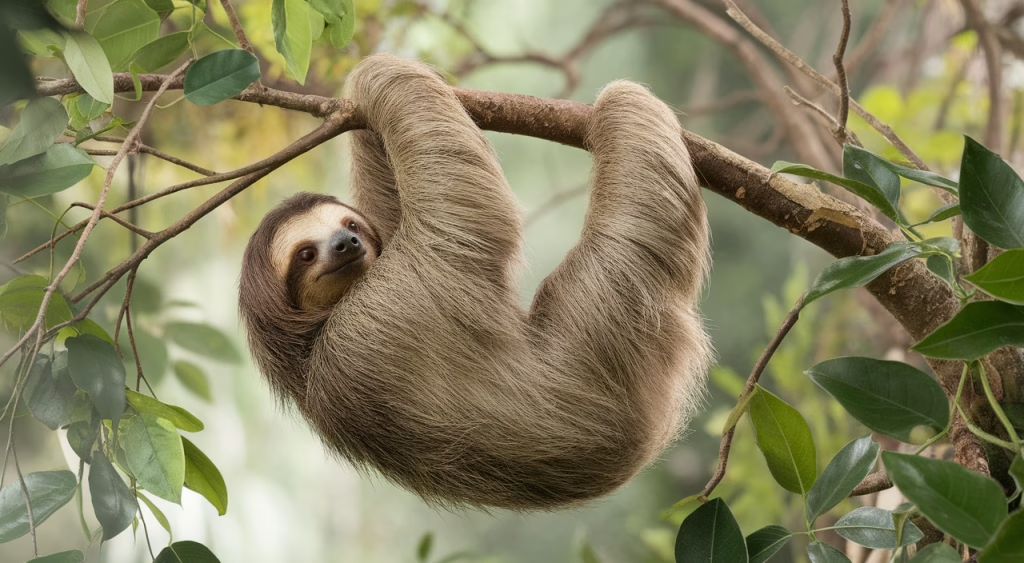Why do rabbits poop so much—and what can Singapore owners do about it?
Rabbits naturally produce a high volume of droppings due to their fiber-rich diet and unique digestive systems. But did you know environmental factors in Singapore—like heat, small living quarters, and dietary inconsistencies—can make the situation worse? Let’s explore what you can do to reduce the poop overflow in your bunny’s pen.
- Rabbits are herbivores requiring a fiber-loaded diet
- They digest food quickly, resulting in lots of droppings
- Smaller enclosures and lack of stimulation increase mess
- Overheating causes anxiety and can lead to more droppings
- Proper diet, housing, and climate control help manage it
Understanding a Rabbit’s Digestive Needs
Imagine a tiny, adorable grazing machine—that’s essentially your rabbit. Rabbits are obligate herbivores, meaning their digestive systems are built for constant grazing, primarily on hay, leafy greens, and fibrous plants. This high-fiber intake keeps their gut moving, but also means they’re biologically wired to produce large volumes of rabbit poop.
Unlike dogs or cats, rabbits have a unique process called hindgut fermentation. They actually eat some of their droppings—called cecotropes—a second time to extract essential nutrients. The rest? Regular droppings: tiny, dry pellets that they pass frequently. It’s not a sign of illness; it’s biology at work.
Why Diet Directly Affects Dropping Volume
Here’s what often happens: excited new bunny owners give their pets loads of pellet food or sugary treats without enough hay. The result? Diarrhea, inconsistent pooping patterns—or even more rabbit poop as their systems struggle to regulate.
A high-quality fiber diet with Timothy hay should make up 80–90% of your rabbit’s daily intake. It acts like a natural broom, sweeping the gut clean. This keeps digestion healthy but also leads to more frequent—and healthy—droppings.
| Food Type | Effect on Droppings |
|---|---|
| Pellets (in excess) | Can cause overproduction or soft stool |
| High-Fiber Hay | Produces abundant but healthy pellets |
| Greens (lettuce, parsley) | Improves hydration in stool |
| Sugary Fruits | Can disrupt gut bacteria, increase odor |
Impact of Enclosure Size and Design
Why small cages make big messes
Have you ever tried living in a broom closet? When rabbits don’t have enough space to stretch, hop, or explore, they get bored. And with that boredom often comes stress behaviors—including pooping more out of anxiety or rebellion.
Many owners in Singapore resort to compact rabbit housing due to space constraints, yet rabbits truly thrive when they have secure play areas outside the enclosure. A good rule of thumb? Your rabbit should be able to take three full hops in any direction, stretch vertically, and run without hitting the sides of the cage.
Climate Control: Why Singapore’s Heat Matters
Singapore is a tropical country—and that matters for rabbit care. Rabbits are heat-sensitive and thrive in cool, ventilated environments. When their enclosures become hotboxes, rabbits get stressed and dehydration kicks in—altering both digestion and excretion patterns.
Here’s what you can notice in practice: if your bunny’s cage sits next to a window during midday heat, they might start panting, scattering rabbit poop all over, or avoiding feeding areas. All signs of discomfort that directly impact their droppings.
Simple ways to create a cooling effect indoors include:
- Good air circulation using fans (not pointed directly)
- Ceramic tiles or frozen water bottles placed inside the cage
- Avoiding placing cages near windows during peak heat
Psychological Factors: Pooping as Communication
Yes—it may sound odd, but bunnies use their droppings to mark territory! If you’re cleaning the cage aggressively or rearranging items, some rabbits start pooping more almost defensively. They also leave pellets outside litter boxes when feeling insecure or asserting dominance.
Neutering or spaying often reduces this territorial behavior. Plus, keeping your rabbit housing environment predictable—same feeding spot, quiet resting zones, and familiar toys—can limit overstimulation and prevent rebellion poops.
What You Can Do: Proven Strategies That Help
Creating a cleaner, happier rabbit life
We get it. Cleaning rabbit poop five times a day isn’t the dream part of rabbit parenting. But here’s a step-by-step checklist to reduce the workload significantly:
- Switch to a high-hay, fiber diet — limit pellets to 5% of daily intake
- Increase floor time with secure playpens or bunny-proofed rooms
- Use absorbent bedding like straw or paper-pellets in litter zones
- Place hay near litter trays—most rabbits poop while eating
- Keep a consistent cleaning schedule to help reinforce potty habits
- Monitor emotional triggers: loud noises, heat, or introduction of new animals
| Strategy | Impact |
|---|---|
| More Floor Space | Less boredom-induced pooping |
| Proper Nutrition | Healthier, smaller droppings |
| Avoid Heat | Reduces stress-related pooping |
| Litter Training | Concentrates droppings in one area |
How Mantis Shrimp Detect Polarized Light: Nature’s Most Advanced Underwater Vision System
Frequently Asked Questions
1. Is it normal for rabbits to poop all the time?
Yes. Healthy rabbits produce abundant dry pellets daily. It’s how their gut stays active and nutrient absorption works best with their fiber diet.
2. Can I train my rabbit to poop in a designated area?
Absolutely. Rabbits can be litter trained with patience, especially if the litter box contains hay and is placed in their preferred corner of the rabbit housing.
3. What food causes too many droppings?
Too many pellets or sugary fruits can overload their digestive system. Stick with high-fiber hay and fresh greens for better control of rabbit poop volume.
4. Does neutering reduce territorial pooping?
Yes. Fixed rabbits tend to mark less, resulting in fewer random droppings outside litter zones in their rabbit housing.
5. Why is my rabbit pooping more during hot weather?
Heat increases stress, reduces water intake, and causes discomfort—all of which can elevate dropping frequency. Cooling adjustments in rabbit housing help significantly.
6. How often should I clean my rabbit’s cage?
Ideally once daily for toilet areas, and a deep clean weekly to remove smells and bacteria from the rabbit housing.
7. Can overfeeding cause poop issues?
Yes. Overfeeding pellets or greens beyond their needs leads to soft stools and mess. Monitor portions carefully to maintain a proper fiber diet.

